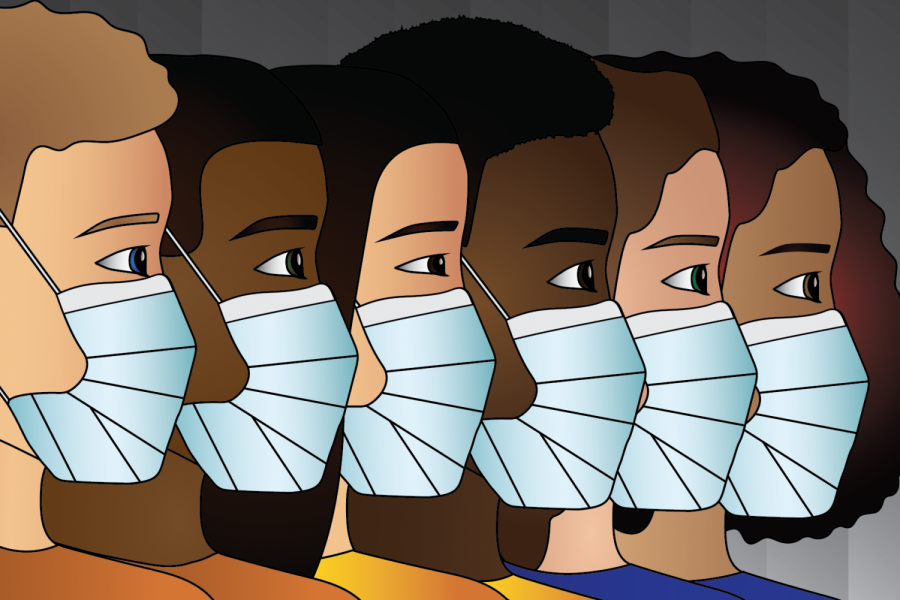Acknowledge the mental health challenges created by the pandemic
October 14, 2021
It is an understatement to say that COVID-19 uprooted our lives. No one was spared the unpredictability, stress and instability the pandemic brought upon students, staff and faculty members across campus. The University too hastily transitioned back to in-person classes this fall without acknowledging the collective trauma induced by the pandemic.
Many found themselves facing a changed relationship with work, increased dependence on technology and a constant unsettling fear surrounding the future. Some even lost a loved one during the last year and a half.
Just as many students found normalcy in taking online classes by establishing a work-life balance, finding time to nurture hobbies and prioritizing time with their families, the University announced plans to return in-person in the fall.
In partnership with the Counseling and Mental Health Center, the University should create a campaign to validate the feelings and challenges students feel after returning to campus.
Physical classes have revived the bustle of the Forty Acres as people rush to and from classrooms, and a seat is seldom to be found in the Perry-Casteñada Library. At the same time, many professors began classes at full speed with the same pre-pandemic expectations for attendance, turning in homework and taking exams.
Plan II, international relations and global studies senior Sumaya Daghestani feels that she is still struggling to adjust to the transition back to campus.
“It’s been really hard for me to be expected to attend classes as I usually would, but then also make time for this new form of meetings and classes through Zoom which people have increased expectations of,” Daghestani said.
The University primarily uses emails to communicate new protocols and announcements about COVID-19 testing, vaccines and in-person instruction. However, electronic communication cannot express the empathetic message students need to hear at this time.
“I’ve almost come to a point where I can’t bring myself to fully follow what the University is and isn’t doing, so instead of relying on UT to support me through this transition, I’ve made sure my support system outside the official pathway is secure,” Daghestani said. “Fortunately, I’m lucky to have that, but I realize that not all students have that ability to have support systems that are solid enough.”
Katy Redd, CMHC associate director for prevention, development and media relations, highlighted several mental health issues that the CMHC saw more often during the pandemic.
“More students were presenting with anxiety and eating concerns than we would typically see,” Redd said. “Relationship issues and academic concerns were also a little bit higher.”
Apart from offering the “Re-entry: Transitioning into School Post-Virtual Life” support group that meets weekly, the CMHC does not have any resources or programming specifically in response to the pandemic.
“I don’t think (the CMHC) is ever going to get to a place where we say ‘Okay this is it, this is all we are going to do,’” Redd said. “I think we are always going to be looking at what’s next, what do we need to be providing next or different or how do we have to evolve.”
A larger community reconciliation and Universitywide campaign is necessary to normalize the feelings many students are facing. Some may still possess feelings of anxiousness towards the virus and its variants, suffer from social anxiety after a long period of isolation or feel overwhelmed by a hybrid schedule with both in-person and virtual classes.
This campaign would encourage professors to express more empathy and compassion during this unusual semester and lead to a more supportive community during a time of unprecedented challenges and more.
Raghu is a Plan II, Middle Eastern Studies, and Arabic senior from Coppell, Texas.











